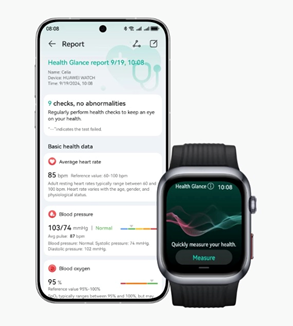Blood
pressure is a crucial aspect of overall health, yet it is often overlooked
until problems arise. High blood pressure, also known as hypertension, can be a
silent condition that significantly impacts your heart and other vital organs.
Recognizing the triggers that cause blood pressure spikes is essential for
maintaining healthy levels. Various factors, such as stress, diet, and
environmental changes, can contribute to elevated blood pressure, making it
vital to identify and address them early.
This article delves into the most common triggers of high blood pressure
and offers practical tips to avoid them. By implementing healthy habits and
monitoring your blood pressure regularly, you can minimize the risks and
improve your overall health.

Common Triggers of High Blood Pressure
Stress and Emotional Factors
One
of the most significant triggers of high blood pressure is stress. Whether it’s
work-related pressure, personal life challenges, or emotional distress, stress
can lead to temporary spikes in blood pressure. In response to stress, the body
releases hormones like adrenaline, which increase the heart rate and narrow
blood vessels, causing a rise in blood pressure. Emotional factors, such as
anxiety, anger, and depression, also contribute to increased blood pressure.
The body's stress response can cause a “fight or flight” reaction, which, when
activated repeatedly, can put significant strain on the cardiovascular system.
Managing stress through relaxation techniques, mindfulness, and regular breaks
can help reduce these emotional triggers and prevent blood pressure
spikes.
Poor Diet and Excessive Salt Intake
Diet
plays a crucial role in managing blood pressure, and poor eating habits are one
of the most common causes of hypertension. A diet high in sodium, processed
foods, and unhealthy fats can lead to water retention and inflammation, both of
which contribute to high blood pressure. Excessive salt intake is a
particularly dangerous factor, as it increases the amount of sodium in the
bloodstream, causing blood vessels to stiffen and elevate blood pressure. Many
people wonder, "does coffee cause high blood pressure?" The answer is somewhat nuanced.
Caffeine can cause a temporary spike in blood pressure, especially in those who
are sensitive to it. However, the effect is usually short-lived, and regular
coffee drinkers may build a tolerance. While the impact of coffee on blood
pressure varies from person to person, it’s wise to moderate your intake if you
have high blood pressure or are at risk.
How Lifestyle Habits Impact Blood Pressure Levels
Lack of Physical Activity
Sedentary
lifestyles have become increasingly common due to long hours at work or at
home, leading to a significant risk for elevated blood pressure. Physical
activity helps maintain a healthy heart and blood vessels, reducing the risk of
hypertension. Regular exercise strengthens the heart, enabling it to pump blood
more efficiently, thus lowering the pressure on the arteries. Even small
changes, such as taking the stairs instead of the elevator or going for a walk
during lunch breaks, can significantly reduce blood pressure. Studies show that
30 minutes of moderate exercise most days of the week can lower blood pressure
by as much as 5 to 10 mmHg in individuals with high blood pressure.
Smoking and Alcohol Consumption
Both
smoking and excessive alcohol consumption are known to raise blood pressure.
Smoking causes the blood vessels to narrow, reducing the amount of oxygen that
reaches the heart and other organs, which can lead to high blood pressure.
Additionally, nicotine raises the heart rate and constricts blood vessels,
further increasing pressure on the cardiovascular system. Excessive alcohol
intake can also elevate blood pressure. Drinking in moderation is key, as heavy
drinking can lead to long-term hypertension and other heart-related issues. To
manage blood pressure, it is essential to quit smoking and limit alcohol
consumption. Embracing a healthier lifestyle through these changes can help
prevent or reduce blood pressure spikes.
Environmental and External Triggers for Blood Pressure
Noise Pollution and Air Quality
Environmental
factors such as noise pollution and poor air quality can contribute to elevated
blood pressure. Chronic exposure to loud noises, such as traffic or
construction sounds, has been linked to higher blood pressure. The stress
induced by constant noise can affect the cardiovascular system, leading to an
increased risk of hypertension. Similarly, poor air quality, particularly in
urban areas with high levels of pollution, can negatively impact heart health.
Pollutants in the air can damage blood vessels and increase inflammation, both
of which contribute to higher blood pressure. If you live in an area with high
noise levels or poor air quality, it’s essential to take steps to reduce your
exposure. Use earplugs, soundproofing materials, or noise-canceling headphones
to minimize the impact of noise.
Temperature Extremes and Sudden Weather Changes
Extreme
temperatures and sudden weather changes can also trigger blood pressure spikes.
Cold weather causes blood vessels to constrict, increasing blood pressure,
while hot weather can lead to dehydration, which can further elevate blood
pressure. Sudden weather changes, such as a drastic drop or rise in
temperature, can cause temporary fluctuations in blood pressure. To manage
blood pressure during extreme weather conditions, it is essential to stay
hydrated and avoid prolonged exposure to extreme temperatures. Wear appropriate
clothing, and take measures to stay comfortable in both hot and cold weather to
reduce the risk of blood pressure fluctuations.
How to Prevent Blood Pressure Spikes and Maintain
Healthy Levels
Relaxation Techniques and Stress Management
Stress
management is a key strategy for preventing blood pressure spikes. Regular
relaxation practices, such as deep breathing exercises, meditation, and yoga,
can help reduce stress and lower blood pressure. By incorporating relaxation
techniques into your daily routine, you can significantly reduce the impact of
stress on your cardiovascular health. Mindfulness practices can also help
manage emotional responses and keep stress levels in check. Taking short breaks
during the day to relax and recharge is essential for overall health.
Dietary Changes and Healthy Eating Habits
Dietary
changes are one of the most effective ways to maintain healthy blood pressure.
A balanced diet low in sodium, rich in potassium, and high in fruits,
vegetables, and whole grains can help lower blood pressure. Reducing processed
food intake, limiting alcohol consumption, and avoiding excessive caffeine can
also help prevent blood pressure spikes. Regular meals, small portion sizes,
and healthy snacks throughout the day can help stabilize blood pressure levels
and prevent fluctuations caused by hunger or unhealthy food choices.
Monitoring Blood Pressure: Key to Recognizing
Triggers
Using Home Monitors for Regular Tracking
Regularly
monitoring your blood pressure is essential for recognizing triggers and taking
preventive action. Home monitoring devices, such as blood pressure cuffs or
smartwatches, can help you track your blood pressure throughout the day.
Wearable devices like the Huawei Watch D2 offer dynamic blood pressure
measurement, allowing for 24/7 automatic monitoring, even while you sleep. The
watch can provide comprehensive health data, including sleep analysis, heart
rate, and ECG readings, all essential for understanding your blood pressure
trends. Tracking your blood pressure regularly helps you identify patterns and
make necessary lifestyle adjustments. With tools like these, you can stay on
top of your health and take proactive steps to manage your blood pressure.

When to Seek Professional Help for Unstable Blood
Pressure
If
you notice frequent blood pressure spikes or irregular readings, it is
essential to consult with a healthcare provider. A doctor can help identify the
underlying causes of your blood pressure fluctuations and recommend
personalized treatment plans. Regular check-ups and blood pressure screenings
are vital for maintaining long-term heart health.
Conclusion
Recognizing
and avoiding blood pressure triggers is essential for maintaining a healthy
cardiovascular system. By addressing stress, improving diet, engaging in
physical activity, and monitoring blood pressure regularly, you can effectively
manage and reduce the risks of hypertension. With the right tools and lifestyle
habits, you can enjoy a healthy, balanced life free from the complications of
high blood pressure.




